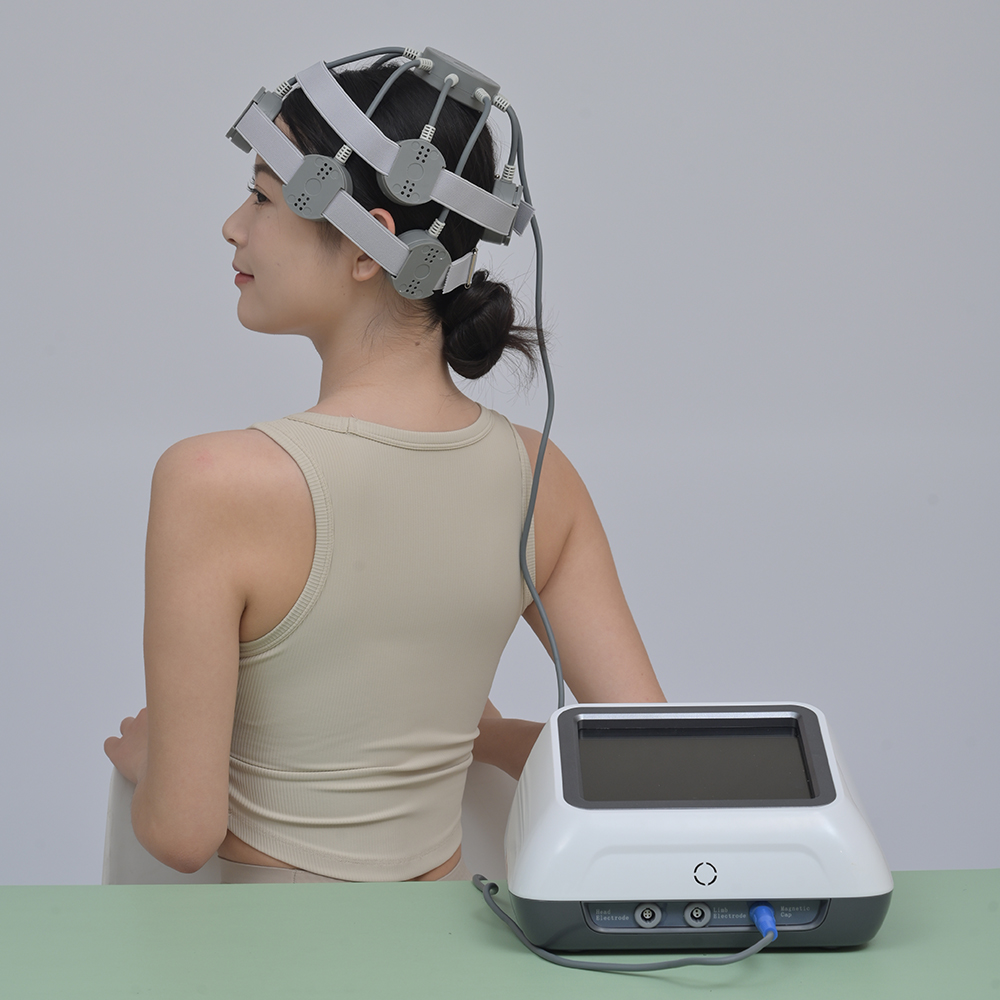Estimulación Magnética TranscranealUn avance en los tratamientos neurológicos

En el ámbito de la neurociencia,estimulación magnética transcranial (TMS)ha surgido como una terapia prometedora para una amplia gama de trastornos neurológicos y psiquiátricos. Esta técnica innovadora aprovecha el poder de los campos magnéticos para estimular áreas específicas del cerebro de forma no invasiva, ofreciendo una alternativa única a los tratamientos farmacológicos y quirúrgicos tradicionales.
Población objetivo y condiciones
TMS es particularmente adecuado para las personas que sufren de una variedad de condiciones que afectan a la funcionalidad del cerebro. Estos incluyen, pero no se limitan a:
· Trastornos neurológicosEnfermedad de Parkinson, epilepsia, recuperación de accidentes cerebrovasculares y rehabilitación de lesiones cerebrales.
· Trastornos psiquiátricos: depresión severa, ansiedad, trastorno obsesivo - compulsivo, trastorno de estrés postraumático y esquizofrenia.
· Trastornos cognitivos: pérdida de memoria, deterioro cognitivo y déficit de atención.
La versatilidad del TMS es que es capaz de resolver estas diferentes situaciones regulando la actividad neuronal en áreas cerebrales específicas.
Mecanismos y funciones del TMS
El TMS funciona entregando breves pulsos magnéticos al cuero cabelludo, que penetran en el cráneo e inducen corrientes eléctricas en el tejido cerebral subyacente. Estas corrientes estimulan las neuronas, alterando sus patrones de actividad y promoviendo la neuroplasticidad, la capacidad del cerebro para reorganizarse y formar nuevas conexiones.
Los efectos primarios de la SMT se pueden clasificar de la siguiente manera:
1. NeuroregulaciónAl influir en la actividad neuronal, TMS ayuda a restaurar el equilibrio en los circuitos cerebrales interrumpidos por la enfermedad.
2. Alivio del dolor: el TMS puede estimular la liberación de endorfinas, un analgésico natural que alivia el dolor crónico.
3. Aumento de la fuerza muscularMejorando la excitabilidad y la estabilidad del sistema nervioso central, TMS puede mejorar la fuerza muscular.
4. Mejora cognitivaLa SMT puede estimular las áreas del cerebro responsables de la memoria y la cognición, fomentando nuevas conexiones sinápticas y mejorando el procesamiento de la información.
5. Regulación del estado de ánimoMediante la modulación de neurotransmisores como la serotonina, TMS puede aliviar los síntomas de la depresión, la ansiedad y otros trastornos del estado de ánimo.
Evidencia y validación internacionales
La eficacia del TMS se ha demostrado plenamente en muchos estudios y ensayos clínicos internacionales. Por ejemplo, el TMS mostró una eficacia significativa en el tratamiento de la depresión severa, y algunos estudios reportaron tasas de respuesta comparables a los antidepresivos tradicionales, pero con menos efectos secundarios. En el caso de la enfermedad de parkinson, se ha descubierto que el TMS mejora la función motora y reduce los temblores.
Además, TMS ha demostrado resultados positivos en el tratamiento de trastornos de ansiedad, TOC, TEPT y esquizofrenia. Un creciente cuerpo de investigación apoya su uso como terapia adjunta en la recuperación del accidente cerebrovascular, ayudando en la regeneración neural y la recuperación funcional.
La Administración de Alimentos y Medicamentos de los Estados Unidos (FDA) ha aprobado TMS para el tratamiento del trastorno depresivo mayor, validando aún más su seguridad y eficacia en la práctica clínica. Del mismo modo, los organismos reguladores de otros países han reconocido el potencial terapéutico de la SMT, allanando el camino para su adopción generalizada.
Precauciones y medidas preventivas
Si bien TMS ofrece una opción terapéutica prometedora, no está sin sus limitaciones y precauciones. Los pacientes con ciertas condiciones médicas, como hemorragia cerebral aguda, marcapasos o implantes metálicos en la cabeza, no son adecuados para el SMT. Además, aunque los efectos secundarios son generalmente leves y temporales (incluyendo dolores de cabeza, mareos y molestias leves en el sitio de la estimulación), deben ser monitoreados de cerca.
Es crucial que los tratamientos TMS sean administrados por profesionales cualificados de acuerdo con los protocolos establecidos. Los planes de tratamiento individualizados, adaptados a las necesidades específicas y los antecedentes médicos de los pacientes, son esenciales para maximizar los beneficios terapéuticos y minimizar los riesgos potenciales.
Conclusiones
La estimulación magnética Transcraneal representa un progreso significativo en el tratamiento de enfermedades neurológicas y mentales. Su capacidad de regular la actividad cerebral no invasiva proporciona una nueva forma de resolver diversas enfermedades que afectan las funciones cognitivas, emocionales y motoras. A medida que aumenta la evidencia internacional que apoya su efectividad y seguridad, se espera que el TMS se convierta en una parte cada vez más indispensable de la atención neurológica y psiquiátrica. Con la profundización de la investigación, podemos esperar que la aplicación de TMS sea más refinada y específica, fortaleciendo aún más su potencial para mejorar la vida de innumerables personas en todo el mundo.
Qijia Medical Device Co., LTD. , un fabricante profesional de dispositivos médicos, tiene su propia fábrica, con investigación y desarrollo independientes y capacidades de producción independientes, y ahora está buscando distribuidores, agentes, etc. Si estás interesado, puedesContacta con nosotros.





